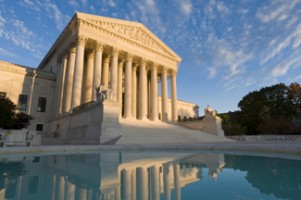Double jeopardy doesn't bar retrial in case of inconsistent verdicts, Supreme Court rules

The U.S. Supreme Court on Tuesday ruled that double jeopardy doesn’t bar the partial retrial of a corporate president and a Puerto Rican senator when a jury delivered inconsistent verdicts, but the counts on which they were convicted were vacated because of incorrect jury instructions.
The unanimous decision (PDF) by Justice Ruth Bader Ginsburg allows retrial on the federal-program bribery count for which the two defendants were originally convicted.
The corporate president, Juan Bravo-Fernandez, had been accused of financing a Las Vegas trip for then Puerto Rican senator Hector Martinez-Maldonado. Though jurors convicted the men on the bribery count, they acquitted them on counts of conspiring and traveling to commit the bribery.
Defense lawyers had argued retrial on the overturned bribery count was barred because the jury necessarily found that the defendants didn’t violate the bribery statute when it acquitted them on the related charges of traveling and conspiring to commit the bribery.
But the Supreme Court said retrial was allowed because the bribery conviction was vacated for a reason unrelated to the inconsistent verdicts. The general rule of allowing a new trial to rectify trial error applies, Ginsburg wrote.
“Because we do not know what the jury would have concluded had there been no instructional error,” Ginsburg wrote, “new trial on the counts of conviction is in order.”
The case is Bravo-Fernandez v. United States.
Hat tip to How Appealing and SCOTUSblog.



